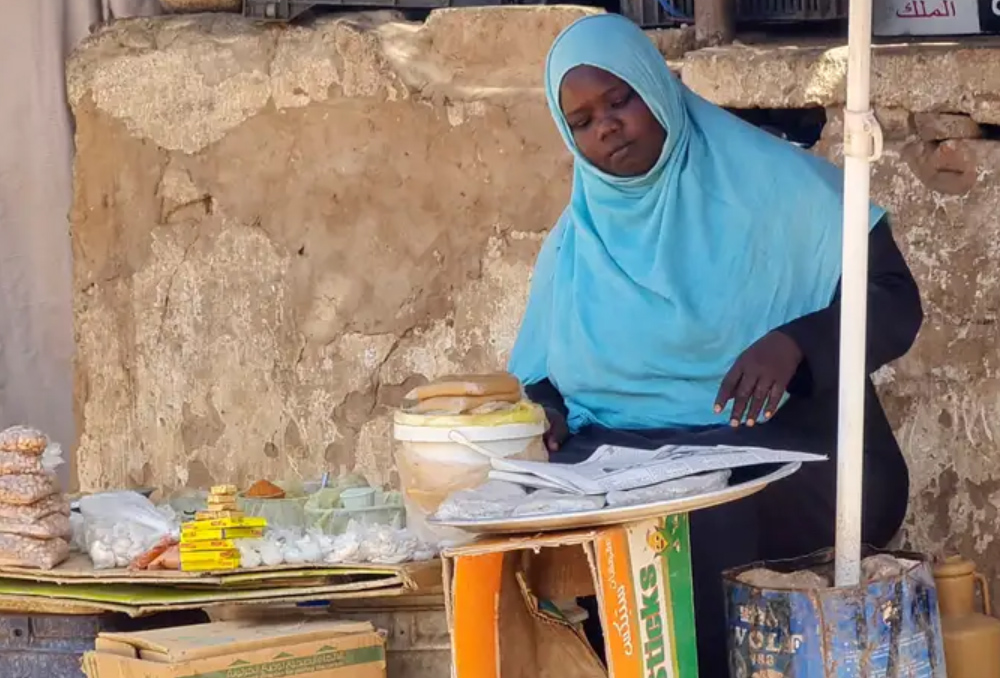
Creatives Resume Their Activities Despite Displacement
Moatinoon
When bullets rain down above you or near you, your mind abandons all thoughts and focuses on one thing: escaping for survival and preserving life. In such circumstances, everyone is equal; gender, wealth, age, and urban or rural origins become irrelevant. Social differences vanish. Upon reaching a place of safety, everyone gains a new label: displaced. Quickly, a new community forms— the displaced. The journey to reclaim life begins under new conditions.
This journey, this battle, is far from easy. The minimal stability resources once provided are gone, and one must quickly employ all mental and physical skills to respond to lifes demands. Struggling with scarcity and tight circumstances becomes a minor part of the process of adapting to this new reality. Part of this adaptation is leaving behind the old professional identity for a new one. An engineer might turn into a soap maker and seller, a teacher might become an itinerant tea vendor, and an office worker might become a seller of kisra (traditional Sudanese bread) as per the German radio Deutsche Welle.
However, some were luckier, managing to maintain their original professions, yet their circumstances were not unlike others in terms of adapting to the new realitys challenges. Ironically, these fortunate ones were often the ones who previously suffered from limited opportunities, low wages, and difficult living conditions before the outbreak of war.
Visual artist Abu Thar Nur al-Din returned to practicing art with simple tools he managed to take with him as he left Khartoum during his displacement journey. This occurred over four months after the conflict erupted in the country, according to the Arab World News Agency.
Nur al-Din laments his lost tools, unsure of their fate amidst the looting and destruction that targeted most homes in the central neighborhood where he lived. Nevertheless, he currently utilizes whatever tools he has to generate income by creating art and selling his paintings to art enthusiasts in Wad Madani city.
As for Mazdalifa Al-Haj, who worked in acting, she secured a job through the United Nations Childrens Fund (UNICEF) to perform dramatic works that help alleviate psychological trauma among displaced children in Al-Jazirah state.
Mazdalifa states that her profession obliges her to work in all conditions to continue her mission of raising awareness and assisting the community in dealing with its psychological and social crises, regardless of increasing difficulties and diminishing resources.
She added, In a matter of days, I found myself without my home, my familiar environment, and my family. I came to a new place in Wad Madani. I tried my best to adapt to the environment. I havent fully adjusted to it yet, nor has the environment completely embraced me, but its the conditions of war.
At the same time, the singer Lamia Al-Fadil and her colleagues prepare to record musical works that call for an end to the war and highlight its severe impacts on Sudanese people. This comes after Lamia had been providing daily musical performances to entertain displaced children.
Lamia remarked, In the span of a day and a night, I found myself without my home, without the environment I was used to, without my family. I arrived at a new place in Wad Madani. I tried my best to adapt to the atmosphere. I havent fully grasped it, and it hasnt fully embraced me, but its the conditions of war.
The conditions of war have compelled thousands of Sudanese artists to flee to nearby cities, leaving behind the capital. Most of them had to live in camps due to their inability to afford the high costs of renting properties.

